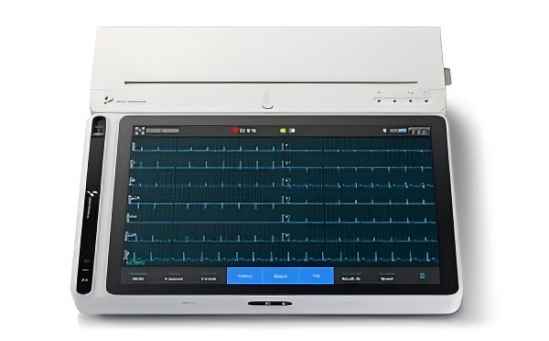How Modern ECG Machines Enhance Diagnostic Accuracy?
-
2024-04-13
-
LEPU

In the world of medical technology, advancements are constantly being made to improve diagnostic accuracy and enhance patient care. One such advancement is the development of modern ECG machines. These state-of-the-art devices have revolutionized the way we diagnose and monitor heart conditions, providing healthcare professionals with valuable insights and accurate results. In this blog, we will delve into how modern ECG machines have enhanced diagnostic accuracy and why they are vital in today's healthcare setting.
What are Modern ECG Machines?
The electrocardiogram (ECG) is a well-established and widely used tool in diagnosing heart conditions. However, the advancements in technology have given birth to modern ECG machines that offer a range of benefits, starting from improved signal quality to advanced analysis features. These machines have become an essential component of any medical facility, from small clinics to large hospitals.
Improved Signal Quality and Data Interpretation
One of the major drawbacks of older ECG machines was their susceptibility to noise interference, which often resulted in errors or misinterpretation of results. Modern ECG machines, equipped with advanced filtering techniques and digital amplification, significantly improve signal quality. This enables healthcare professionals to obtain clean and accurate data, leading to more precise diagnosis and treatment plans. Doctors can now rely on these machines to detect even the smallest anomalies in the heart's electrical activity.
Advanced Analysis Features
Modern ECG machines do not merely serve as passive tools for recording heart activity. They are equipped with advanced software systems that analyze the data in real-time, providing valuable insights into cardiac health. These machines can identify abnormalities, such as arrhythmias, ST segment elevations, and T wave inversions, among others. Moreover, some models are even capable of predicting the risk of heart-related complications, helping doctors take timely preventive measures.
Additionally, modern ECG machines come with user-friendly interfaces and intuitive software, making it easier for healthcare professionals to navigate through the data and interpret the results. These features allow for efficient analyses and quicker diagnosis, ultimately improving patient care.
Remote Monitoring and Telemedicine Applications
With the rise of telemedicine and the need for remote patient monitoring, modern ECG machines have become invaluable assets. These devices are now equipped with wireless connectivity options, allowing healthcare professionals to remotely monitor patients' heart activity. Patients can wear portable ECG monitors, often referred to as cardiac event monitors, which continuously collect data and transmit it to the healthcare provider. This real-time monitoring enables doctors to detect any irregularities promptly and initiate appropriate interventions without delay.
Moreover, remote ECG monitoring has proven to be particularly useful in rural areas and for patients with limited mobility, who can now receive quality care without physically visiting healthcare centers. Modern ECG machines have thus opened new avenues for patient care, making it more accessible and convenient for individuals worldwide.
In conclusion, modern ECG machines have significantly enhanced diagnostic accuracy and improved patient care in the field of cardiology. From improved signal quality to advanced analysis features and remote monitoring applications, these devices have revolutionized the way heart conditions are diagnosed and managed. It is clear that modern ECG machines are no longer just instruments; they are powerful tools that provide healthcare professionals with valuable insights for better decision-making and patient outcomes. As medical technology continues to evolve, we can expect even more advancements in the field of ECG machines, further revolutionizing cardiac care globally.
